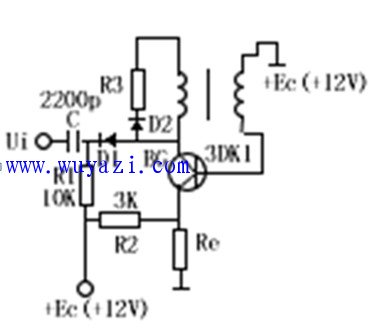This article explores the concept of a self-excited intermittent oscillation circuit. An oscillating current is a type of electrical current that changes in both magnitude and direction over time, following a periodic pattern. A circuit designed to produce such a current is known as an oscillating circuit. The most basic form of this circuit is called an LC circuit, which consists of an inductor and a capacitor connected in a loop.
Oscillating currents are essentially high-frequency alternating currents (AC). Unlike the AC generated by rotating coils in magnetic fields, these currents are produced specifically through an oscillating circuit. This makes them essential in various electronic applications, including radio transmission, signal processing, and timing systems.
When the circuit is first powered on (at time t = tâ‚€), current flows through the primary winding of the transformer to the collector, creating an induced voltage uâ‚ and a secondary sense voltage uâ‚‚. The polarity of uâ‚ alternates, and this causes uâ‚‚ to change accordingly. As uâ‚‚ increases, it further amplifies the voltage across the base, triggering a positive feedback effect known as "avalanche." This process sustains and strengthens the oscillation within the circuit.

Pet Self Wrap Braided Sleeve,Braided Pet Sleeve,Expanding Cable Sleeve,Colored Cable Sleeves
Shenzhen Huiyunhai Tech.Co., Ltd. , https://www.cablesleevefactory.com